
Harriet Elizabeth "Hattie" Giles (1828 - November 12, 1909) was an American educator, cofounder in Atlanta, Georgia, of a school for African American women that would eventually become Spelman College. [1]

Harriet Elizabeth "Hattie" Giles (1828 - November 12, 1909) was an American educator, cofounder in Atlanta, Georgia, of a school for African American women that would eventually become Spelman College. [1]
Harriet E. Giles was born in New Salem, Massachusetts. [2]
Harriet E. Giles and Sophia B. Packard (January 3, 1824– June 21, 1891) were two teachers from the Oread Institute of Worcester, Massachusetts. Giles and Packard had met around 1855 while Giles was a student and Packard the preceptor of the New Salem Academy in New Salem, Massachusetts, and fostered a lifelong friendship there. They never married and considered each other their "companions". [2]

After a short-lived attempt to operate her own school, Rollstone School, in Fitchburg, Massachusetts, she accepted a position at the Oread Collegiate Institute in 1867. After leaving Oread, she became a private tutor in the Boston Area. [2]
Giles and Packard co-founded in 1877 the Woman's American Baptist Home Mission Society, supporting missionary women bringing education to the African-American and Native American communities. [2]
In 1880, Giles with Packard toured the South and decided to open a school for African American women and girls in Georgia. With a gift of US$100 from First Baptist Church of Medford, Massachusetts, and a promise of administrative and financial support from the Boston-based Woman's American Baptist Home Mission Society (WABHMS) that sent them, the two women opened a school in the basement of Friendship Baptist Church, an African-American church in southwest Atlanta. [3]
In 1884, the name of the school was changed to the Spelman Seminary in honor of Laura Spelman, John D. Rockefeller's wife, and her parents, who were longtime activists in the anti-slavery movement.
Packard became treasurer of the board of trustees and she continued in that post and as president of the school until her death, at which time Spelman Seminary had 464 students and a faculty of 34. Giles assumed the presidency in 1901, until her death on November 12, 1909. Giles Hall was dedicated in her honor in 1893. [2]
Packard and Giles are buried together at Silver Lake Cemetery, Athol, Massachusetts. [4]

Spelman College is a private, historically Black, women's liberal arts college in Atlanta, Georgia. It is part of the Atlanta University Center academic consortium in Atlanta. Founded in 1881 as the Atlanta Baptist Female Seminary, Spelman received its collegiate charter in 1924, making it America's second oldest private historically Black liberal arts college for women.

The Oread Institute was a women's college founded in Worcester, Massachusetts in 1849 by Eli Thayer. Before its closing in 1934, it was one of the oldest institutions of higher education for women in the United States. According to the Worcester Women's History Project:
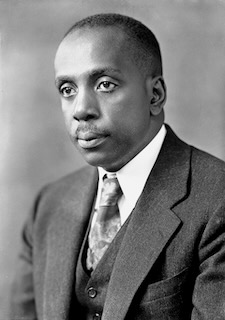
Howard Washington Thurman was an American author, philosopher, theologian, mystic, educator, and civil rights leader. As a prominent religious figure, he played a leading role in many social justice movements and organizations of the twentieth century. Thurman's theology of radical nonviolence influenced and shaped a generation of civil rights activists, and he was a key mentor to leaders within the civil rights movement, including Martin Luther King Jr.
The following is a timeline of women's colleges in the United States. These are institutions of higher education in the United States whose student population comprises exclusively, or almost exclusively, women. They are often liberal arts colleges. There are approximately 35 active women's colleges in the U.S. as of 2021.

Laura Celestia "Cettie" Spelman Rockefeller was an American abolitionist, philanthropist, school teacher, and prominent member of the Rockefeller family. Her husband was Standard Oil co-founder John D. Rockefeller. Spelman College in Atlanta, Georgia, and the Laura Spelman Rockefeller Memorial were named for her.
The American Baptist Home Mission Society is a Christian missionary society. Its main predecessor the Home Mission Society was established in New York City in 1832 to operate in the American frontier, with the stated mission "to preach the Gospel, establish churches and give support and ministry to the unchurched and destitute." In the 19th century, the Society was related to the Triennial Convention of Baptists. Today it is part of that Convention's successor, the American Baptist Churches, USA, and is the successor by merger of several 19th century Baptist organizations related to missions and education, including publications (1824), women (1877), and education (1888).
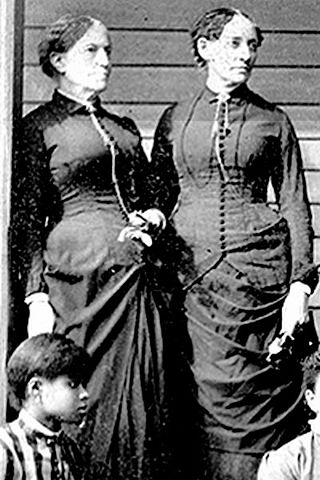
Sophia B. Packard was an American educator, cofounder in Atlanta, Georgia, of a school for African American women that would eventually become Spelman College.
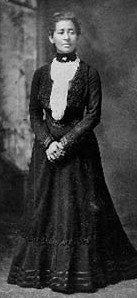
Selena Sloan Butler (1872–1964) is the founder and first president of the National Congress of Colored Parents and Teachers Association (NCCPT). President Herbert Hoover appointed her to the White House Conference on Child Health and Protection in 1929. During World War II, she organized the Red Cross' first black women's chapter of "Gray Ladies." When Congress merged the NCCPT with the National PTA in 1970, Butler was posthumously recognized as one of the organization's founders. Today, Butler is considered a co-founder of the National Parent-Teacher Association.
Charlestown Female Seminary was a Christian school in Charlestown, Massachusetts. Opened in 1830, the female seminary was the second school in Charlestown for young women.

Georgia Rooks Dwelle (1884–1977) was a physician in Atlanta, Georgia who specialized in obstetrics and pediatrics. When Dwelle was licensed as a physician in 1904, she was one of only three African American women physicians in the state of Georgia. Dwelle began to practice medicine at a time when Jim Crow laws and social customs in Georgia required racial segregation in medical schools, health care facilities, and medical societies. To counter the lack of medical care for African-Americans in Atlanta, Dwelle opened the Dwelle Infirmary which was the first successful private general hospital for African Americans in Atlanta, and the first obstetrical hospital for African American women in Atlanta.

Nora A. Gordon was an African American missionary and teacher.
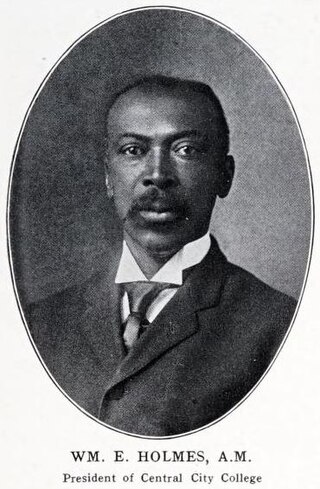
William E. Holmes was a Baptist minister and educator and president of Central City College in Macon, Georgia, for 25 years. Before his term at Central City, he was a professor at the Atlanta Baptist Institute. He was also secretary of the board at Spelman College.
Ella Pearson Mitchell was a Baptist minister, preacher, educator, and author. She was one of the first African-American women to graduate from Union Theological Seminary, and was later ordained to the Christian ministry in 1978. She was the first woman to be appointed Dean of Sisters Chapel at Spelman College in Atlanta. A gifted preacher, Mitchell was named by Ebony Magazine as one of America's "15 Greatest Black Women Preachers" in 1997. During her career, she taught at Berkeley Baptist Divinity School, Colgate Rochester Divinity School, the Interdenominational Theological Seminary, and Union Theological Seminary in Dayton, Ohio. She edited multiple volumes in a series of sermons by women, entitled Those Preaching Women, and co-authored two books with her husband, Henry H. Mitchell.
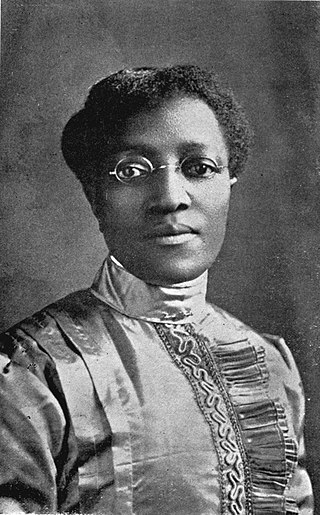
Clara Ann Howard was an American educator and, from 1890 to 1895, a Baptist missionary in Africa.
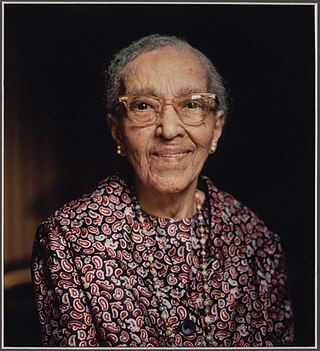
Bazoline Estelle Usher was an American educator known for her work in the Atlanta Public Schools. As director of education for African-American children in the district prior to integration, she was the first African American to have an office at Atlanta City Hall. She founded the first Girl Scout troop for African-American girls in Atlanta in 1943. Her career as an educator lasted over 50 years, over 40 of which were in the Atlanta schools. A school in Atlanta is named for her, and in 2014 she was posthumously named a Georgia Woman of Achievement.

Emma Beard Delaney was a Baptist missionary and teacher, one of the earliest African-American missionaries from USA who worked in Africa, specifically Liberia and the British Central Africa Protectorate.
Georgia Baptist College was a private grade school and college in Macon, Georgia, United States. It was founded in 1899 as Central City College and was renamed in 1938. It closed due to financial difficulties in 1956.
Alice Blanchard Coleman was an American missionary society leader. She served as president of the Woman's American Baptist Home Mission Society and of the Council of Women for Home Missions (1908-16). Coleman was a trustee of Hartshorn Memorial College, Richmond, Virginia; Spelman Seminary, Atlanta, Georgia; and the New England Baptist Hospital, Boston. Writing as "Mrs. George W. Coleman", she made at least two contributions to periodical literature, "The Women's Congress of Missions", 1915, and "Recent developments in Mormonism", 1918. All of Coleman's life was spent in the old South End of Boston.

The Woman's American Baptist Home Mission Society was an American Christian women's missionary organization. Harriet E. Giles and Sophia B. Packard co-founded, in 1877, the Woman's American Baptist Home Mission Society, supporting missionary women bringing education to the African-American and Native American communities.

The Clifton Conference was a gathering of religious leaders held by William N. Hartshorn at his summer home in Clifton, Massachusetts. Five conferences are known to have been held, between 1901 and 1908.